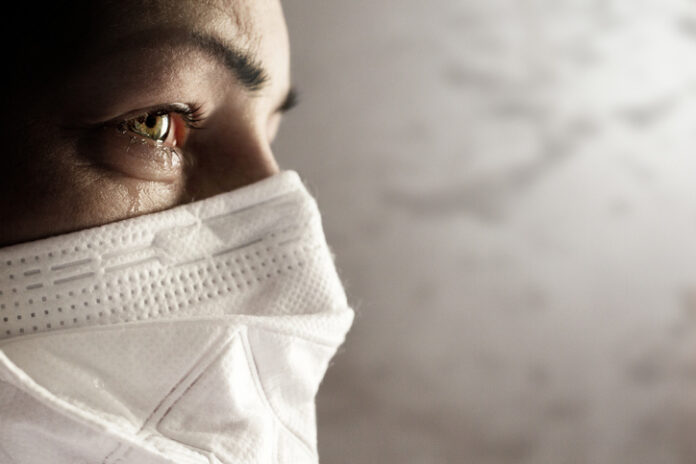More than seven months into the COVID-19 pandemic, with the number of cases continuing to rise, overall hospitalizations in the United States are experiencing a decline.
This seemingly counterintuitive trend was highlighted in an article on October 20 in the New York Times by Pauline W. Chen, M.D., a Boston physician. Chen cited admissions data gathered from researchers at Sound Physicians, a national medical group of almost 4,000 doctors specializing in hospital medicine, critical care, and emergency medicine, as well as at the Dartmouth Institute for Health Policy and Clinical Practice.
In the study, “The Impact of the COVID-19 Pandemic on Hospital Admissions in the United States,” the researchers compared admissions data from almost 200 hospitals in 36 states and compared differences in patient characteristics, diagnoses, and mortality rates between February and July 2020 with the same time period in 2019. The researchers found that by mid-April of this year, admissions of non-COVID patients had dropped by nearly half.
Explanations for the Decline
Even after coronavirus infection rates began falling temporarily in the summer, and hospitals once again began offering elective surgery and in-person visits to doctors’ offices, hospitalizations remained 20 percent below their normal level.
Initially, it was assumed by some health experts that patients were foregoing hospital visits for fear of contracting the virus. But the study found that even patients with serious diseases, including asthma, emphysema, pneumonia, sepsis, strokes, and heart attacks were avoiding hospitals, even if their condition was worsening.
Searching for an explanation, John D. Birkmeyer, M.D., lead author of the study and chief clinical officer for Sound Physicians, speculates that the likely explanation for persistently lower hospitalization rates “may simply be that fewer people are getting sick in the first place.”
Chen writes there is a plausible explanation for this decrease in illness.
“Statewide stay-at-home orders aimed at curbing the coronavirus resulted in a dramatic drop in human activity and a concomitant improvement in air quality across the country,” Chen writes. “Poor air quality is linked not only to respiratory diseases like asthma and emphysema but also to other illnesses like strokes and heart attacks. Recent reports from around the world have noted decreases in hospitalizations for heart attacks and non-COVID respiratory illnesses like influenza during lockdowns and quarantines.”
Downturns a Key to Wellness?
Because lockdowns kept more people indoors, there is speculation that people were reducing risk levels for negative health consequences.
“Research over the years has also shown that during recessions and periods of higher unemployment, people may at least temporarily adopt healthier behaviors,” Chen writes. “Individuals may smoke and drink less, get more exercise, improve their diet, and lose weight, and have less stress related to work and commuting.”
Those views are similar to ones expressed by White House coronavirus adviser Anthony Fauci and his colleague at the National Institute for Allergies and Infectious Diseases, David Morens. In a recent article in the journal Cell, they wrote that preventing future “disease emergencies” will require “radical changes,” including “rebuilding the infrastructures of human existence, from cities to homes to workplaces…”
Not all medical professionals believe that lockdowns and the resulting unemployment have been good for public health.
“The same study Dr. Chen cites also reports longstanding research that shows a one percent fall in employment leads to a 2 percent increase in the prevalence of chronic illness,” said Marilyn Singleton, M.D., J.D., a California-based physician and former president of the Association of American Physicians and Surgeons. “The hypothetical improved health from reduced air pollution is not supported by the actual data.
“Deaths from non-respiratory illnesses have increased, and cancer specialists expect late diagnosis of cancer to cause thousands of preventable deaths,” Singleton said. “Lockdowns and social distancing are not normal human behavior, and at some point, they take their toll.”
Bonner R. Cohen, Ph.D., (bcohen@nationalcenter.org) is a senior fellow at the National Center for Public Policy Research.




















